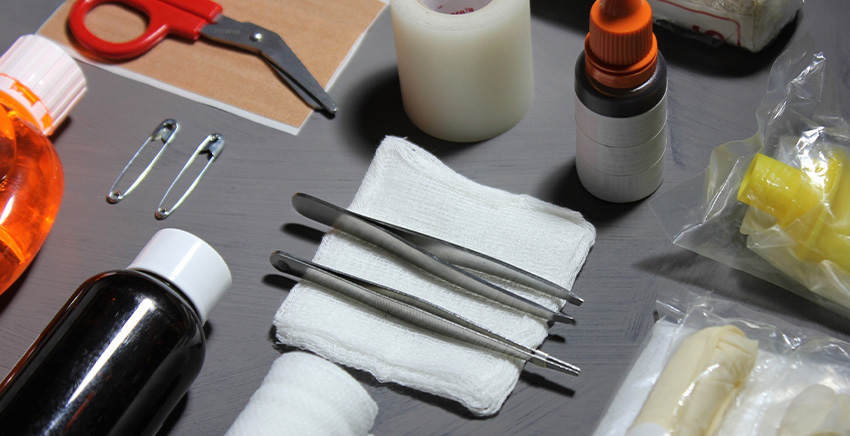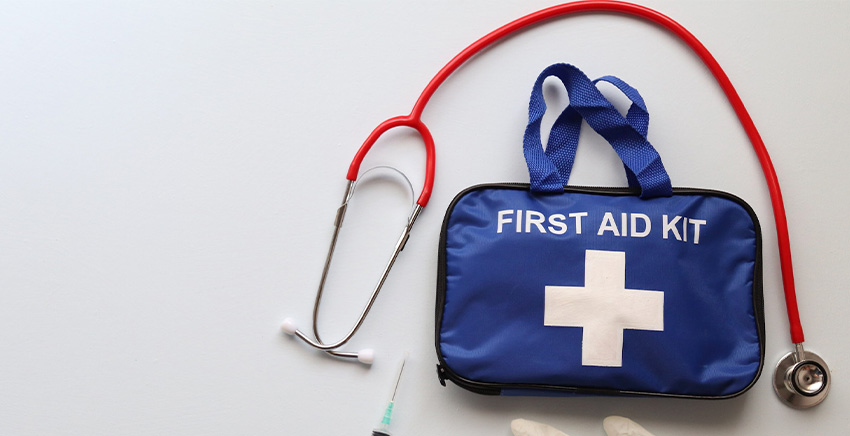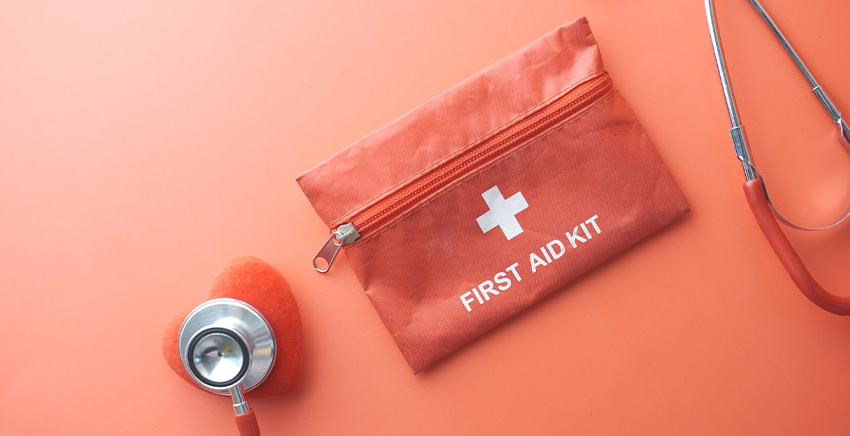

Emergency Travel Supplies List
Traveling with care does not imply traveling without caution. While traveling and distant from home, emergencies might happen and often occur. Whether you’re traveling across the country or around the world, a first-aid kit is a crucial item to pack. Having the proper supplies on hand is crucial when traveling.
What should be included in a travel first aid kit?

You might have everything you require in your first-aid kit to treat minor ailments and injuries. There will be a variety of items in this, but you don’t have to bring a full medicine cabinet.
Get a little box or zip-top bag initially, and then properly name it. Gather the goods on this list after that. Here is all your first-aid kit needs to have in order to be ready for just any minor medical emergency.
Essential First-Aid Supplies

Without these essentials, no emergency kit for travel is complete:
Wipes: Wipes that are antibacterial might be useful for cleaning hands and instruments.
Hand Sanitizer: Apply hand sanitizer which has a minimum of 60% alcohol prior to actually treating any injuries or scratches.
Effective Painkillers: Acetaminophen or ibuprofen are effective painkillers for headaches or sprains.
Scissors: If you need to cut bandages, gauze, or open pharmaceutical packages, bring it in your suitcase instead of your carry-on if you’re traveling by air.
Self-stick wrap: Self-adhesive wrap, that doesn’t require needles or other tools, can be used to cover injured knees, ankles, or other wounds.
Instant cold pack: Such single-use packs quickly become chilly to soothe minor injuries, scratches, and burns.
Thermometer: Use a thermometer to check for a fever; after use, sanitize it with an antiseptic wipe.
Tweezers: they are a necessary instrument for removing ticks and stings.
Antiseptic: Antiseptics, whether in the form of sprays or wipes, are excellent for removing dirt and bacteria from small wounds and scrapes.
Bandages: To wrap the wound it must include different size bandages.
Gauze: Keep several gauze pads on hand for larger wounds that require beyond a bandage.
Medical tape: It is required to secure the gauze to the body.
Basic Medicines: Prescription drugs you regularly take at home. In addition to the recommended amount of medication, travelers should pack extra in case their return home is prolonged.
Antihistamines: Spring and winter are among the worst seasons for allergies. Stock up on antihistamines for your kit.
Cold-Relief Medication: Carry cold-relief medication to aid with a runny nose, coughing, and Congestion.
Anti-diarrhea Tablets: Antibiotics may be prescribed by your physician if you are traveling to a region where diarrhea is common.
Closing Up:
You can travel with confidence knowing that you’re equipped to manage any bruises and scrapes (as well as migraines, stomachaches, and cough or sneeze) along the journey with a little advance planning and a decent, durable zip-up bag.




